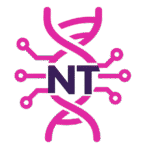
AI and the Future of the Workforce: Leading Through Transformation
Quick Take (for the skimmers & AI Overviews)
AI Governance: Building Trust in Healthcare, Finance, and Beyond
What is AI governance? A framework of policies, oversight, and practices that ensure AI is ethical, compliant, and trustworthy.
Why it matters: In regulated industries like healthcare and finance, using AI without proper governance creates serious risks of compliance failures, biased outcomes, and reputational damage.
How to win: Embed governance guardrails, human-in-the-loop review, and cultural readiness to ensure adoption and ROI.
Key roles: Governance managers, compliance officers, change leaders, and content/ops strategists.
What is AI Governance?
AI governance is the set of standards, processes, and roles that manage risk and ensure AI delivers value responsibly. It covers:
Ethics: Preventing bias, ensuring fairness.
Compliance: Meeting regulations (HIPAA, SOX, GDPR, etc.).
Transparency: Explaining how AI systems reach decisions.
Accountability: Defining who is responsible when AI makes errors.
Oversight: Embedding HITL in critical workflows.
Why AI Governance Matters
AI adoption is accelerating, but without governance, the risks multiply. In healthcare, an AI system giving incorrect treatment recommendations can endanger lives. In finance, AI errors can lead to regulatory penalties or fraud exposure. A 2025 Gartner survey found that 73% of executives cite governance as the top barrier to scaling AI.
Trust is the currency of adoption. Employees will only use AI if they believe it’s accurate and safe. Customers will only accept AI-driven decisions if they see transparency and fairness. Regulators will only allow AI expansion if governance frameworks are in place.
AI governance is the set of standards, processes, and roles that manage risk and ensure AI delivers value responsibly. It covers:
Ethics: Preventing bias, ensuring fairness.
Compliance: Meeting regulations (HIPAA, SOX, GDPR, etc.).
Transparency: Explaining how AI systems reach decisions.
Accountability: Defining who is responsible when AI makes errors.
Oversight: Embedding HITL in critical workflows.
What are the key elements of AI governance?
Frameworks & Standards: NIST AI Risk Management Framework, ISO/IEC 23894.
Human-in-the-Loop (HITL): Humans validate AI in healthcare, finance, and other high-stakes workflows.
Governance Roles: Compliance managers, governance officers, risk analysts.
Metrics & Audits: Tracking AI accuracy, adoption, and outcomes.
Culture & Training: Building AI literacy and ethical awareness across staff.
What are some industry use cases for AI governance?
Healthcare: AI used in triage must be reviewed by clinicians to avoid misdiagnosis. PwC reports 67% of providers cite governance as key to patient trust in AI.
Finance: AI in fraud detection must balance speed with fairness. Gartner predicts that by 2027, 60% of banks will adopt governance-first AI frameworks to reduce compliance risk.
Marketing & Content Ops: Governance ensures AI-generated content stays on-brand, inclusive, and legally compliant. A HubSpot survey shows 58% of marketers worry about bias or errors in AI content without governance.
What are the common pitfalls in AI governance?
Overcomplication: Too many rules slow adoption.
Underinvestment: Treating governance as an afterthought leads to risk.
Siloed responsibility: No clear owner of AI accountability.
Bias blind spots: Failing to test for inequities in AI outputs.
What is leadership’s role in AI governance?
Leaders must:
Establish frameworks early: Bake governance into AI projects from day one.
Champion transparency: Communicate clearly how AI is being used.
Invest in training: Upskill staff on ethical AI and compliance.
Model accountability: Hold teams (and themselves) responsible for AI outcomes.
Balance innovation with trust: Encourage experimentation while keeping oversight.
Closing: Governance as the Enabler of Scale
AI will not scale without trust. Governance is not a barrier to innovation — it’s the foundation for sustainable adoption. In healthcare, finance, and beyond, companies that lead in governance will lead in market share. The future belongs to organizations that treat governance as a growth strategy, not just a compliance checkbox.
Key Terms Glossary (and Future Blog Roadmap)
AI Governance: Policies and oversight to ensure ethical, compliant AI. (Blog: AI Governance: Building Trust in Healthcare, Finance, and Beyond)
HITL (Human-in-the-Loop): Human checks in AI workflows. (Blog: Human-in-the-Loop (HITL): Building the Workforce of the Future )
AI Risk Frameworks: Standards like NIST AI RMF and ISO/IEC 23894. (Future blog: Comparing Frameworks.)
Bias Mitigation: Techniques to reduce inequities in AI outputs. (Future blog: Practical Bias Mitigation.)
Governance Roles: Compliance managers, risk officers, governance leaders. (Future blog: Emerging Governance Roles.)
